For Amie, coffee wasn’t love at first sip – it was love at first dial-in! That breakthrough moment behind the bar lit a spark that turned into a lasting career. What began as a simple supervisor role in hospitality soon grew into something much larger: a passion for coffee that continues to shape her path today.
Her journey has taken her from learning to roast by instinct on a Diedrich machine, to travelling to the origin in Peru, to building skills and friendships in some of the UK’s most respected cafés and roasteries. Along the way, Amie has worn many hats – barista, roaster, mentor, and operations lead- each adding a new layer to her understanding of coffee.
Now based in Edinburgh, Amie brings that experience to her current role as Head Barista at Lannan Bakery. She pairs technical precision with a sense of joy, striving to create cups that match the level of the celebrated pastries served alongside them. For her, coffee is serious work, but it’s all about people, connection, and having fun while making something worth remembering!
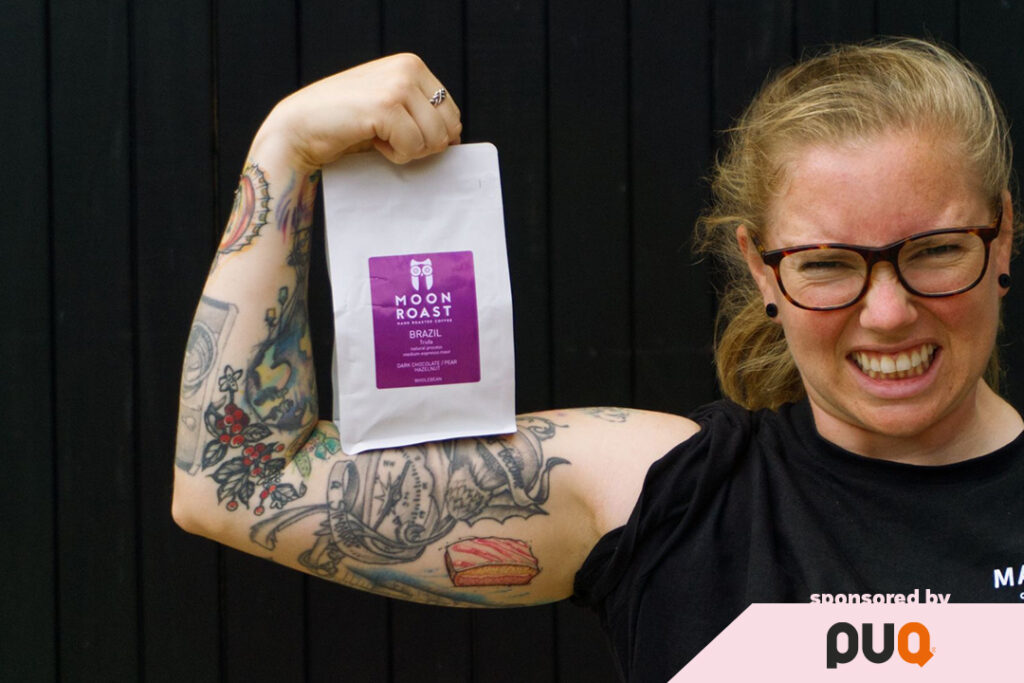
Amie, what is your first memory with coffee?
My first memory of coffee was the day that dialling in really “clicked” and I felt this moment of pride and passion just spark inside of me. It was the moment I knew that coffee was going to be more than just a job.
What inspired you to pursue a career in the coffee industry, and how did you get started? What did you do before coffee?
I had been working in the bar/restaurant aspect of hospitality for a while and an opportunity to leave that lifestyle presented itself. It was a cafe supervisor role, 9-5 style and Monday to Friday. I had no experience in coffee, but I was experienced enough to do the rest of the job. The company was big and liked to use local roasteries where they could. This was where it all began. Once I had tasted specialty coffee, figuratively and literally, I was hooked. My brain was able to understand and absorb so many complexities of specialty coffee well beyond the drinks I was serving.
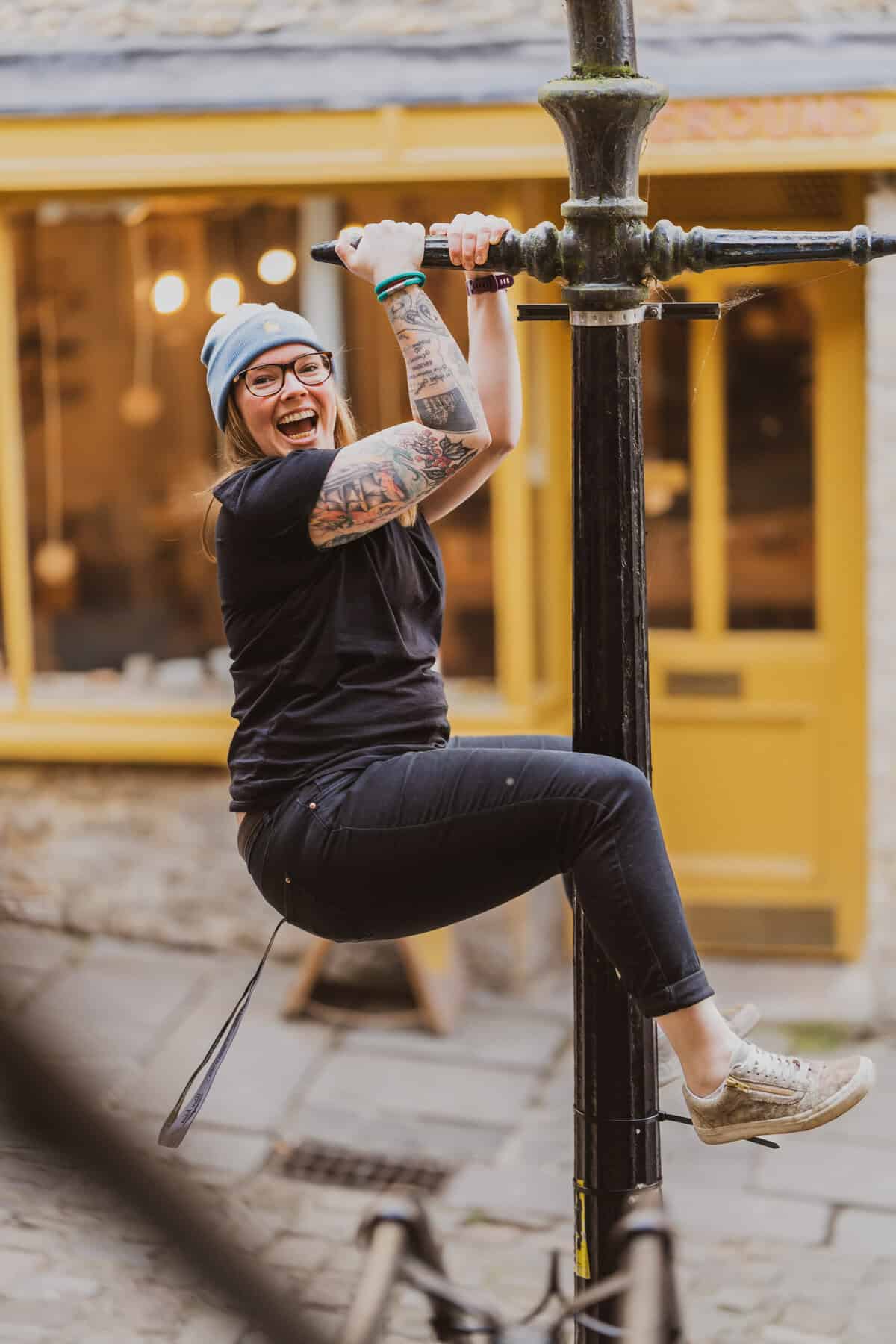
Tell us a bit about the places you work at and the projects you are involved in. What are your roles?
I’ve been quite fortunate to have a portfolio of roles in this industry. I have worked for Gather & Gather (where it all began). My role there took me places I could have never imagined. Including the greatest coffee experience I have ever had, going to the origin. They sent me to Jaen, Peru, to meet the farmers and experience where it all begins. Union Coffee was the main supplier of G&G Coffee across the UK, and this was a new project on connecting and building a relationship with the farmers. It was that experience that really got a fire in my belly, and ever since then, I’ve dreamt of working and experiencing that aspect of coffee and living at origin.
I learned to roast coffee manually on a Diedrich 5kg roaster. At the time, the concept of using Cropster wasn’t always around. So everything I learned was by time, taste, smell, and sight and I wrote down every bit of information. I am so grateful to have learnt in this way, as it gives a true understanding and foundation of what roasting is.
Due to Covid, my roasting role came to an end. By the time I was able to go back to work, I was living down in south west England and working in a town called Frome. I got a lovely role as a barista working with some of the greatest people I’ve ever known. I loved that job. Country music on vinyl and great coffee. What more could you want?
Then, my next big role came. I had applied to work in the dispatch section of a roastery called Moon Roast. I drove an hour and a half every day to get to this job, but it was absolutely worth every mile. Moon Roast is where I really bloomed. From becoming Queen of Dispatch to getting to roast again. I made a family there, and I learned so many aspects of coffee and working on a deeper level. I will always be Team Moony.
Finally, I am back in Edinburgh, where I have held roles as Roastery Operations, Coffee Quality Mentor and then into a bit of freelance work. I took on the Head Barista role at Lannan Bakery, as Freelance can be hard, and sometimes you just need something to keep the bills paid and your mind at ease. My role at Lannan allows me to elevate the coffee to the same level as the pastries are on, or at least get close. I take what I do very seriously, but I don’t take myself too seriously. I like to have a good time whilst making people some damn good coffee.
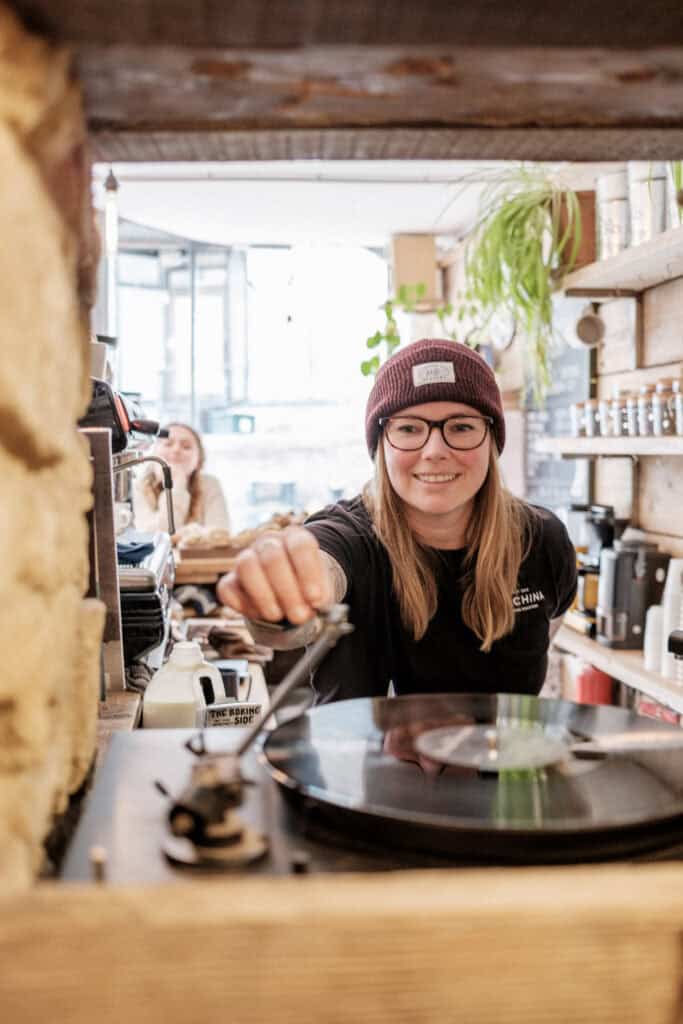
What kind of experience do you want your customers to have when they try your coffee?
I make every drink with care. Ensuring the shots are pulled correctly and the milk is steamed to a glossy perfection. I want them to know I care before they’ve even tasted it. Once they have tasted their coffee, they will appreciate it even more, I hope.
What is your favourite part of the day at work, and why? Which responsibilities do you enjoy the most?
I really enjoy overhearing customers make compliments of the coffee I make, or even seeing the latte art I add, even though a lid will be put on over it. There’s always joy in being complimented on your work, especially when you care so much about what you do.
How do you stay motivated and inspired to keep improving your coffee-making skills?
In this industry, you have to try and keep up with everything going on. Things are constantly evolving in coffee, and that can be hard to keep up with. Going to cuppings is one thing I have found that helps keep you relevant and aware of what’s going on. It helps keep you talking about things and trying the latest coffees.
I also like to randomly enter myself into competitions that I have no chance of winning. I have recently entered the Manchester Coffee Festival Latte Art Competition, and I know that my hands will not let me pour anything. But by putting myself out there, it gives me a chance to keep in the loop and put my face out there. This helps keep me going.
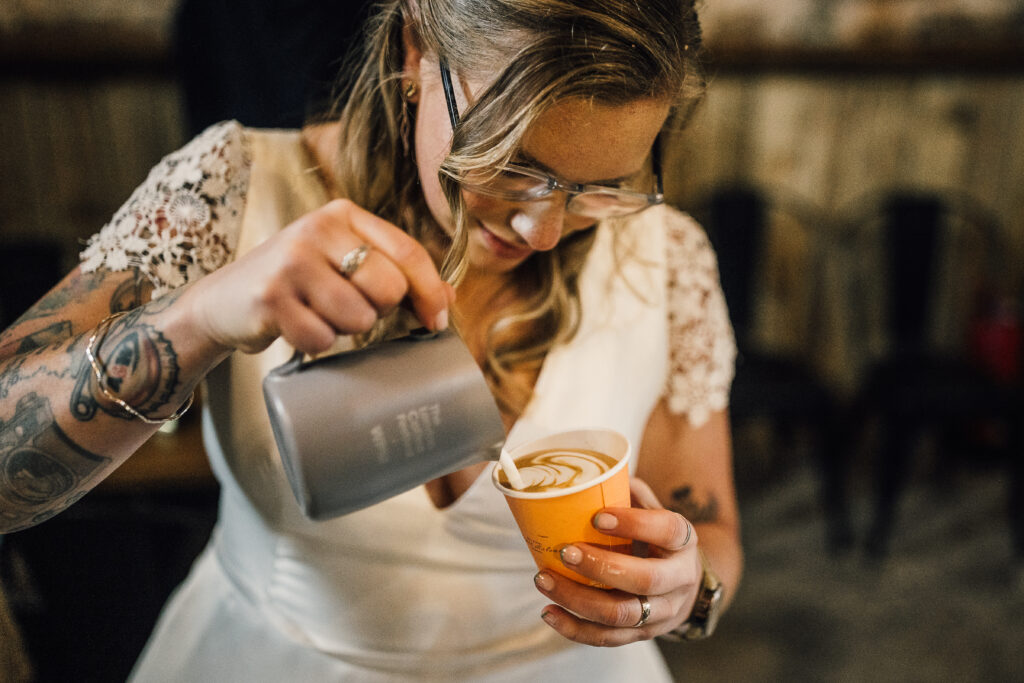
What are some common misconceptions about our industry that you’ve encountered, and how do you address them?
I suppose you could say that a lot of people think we are pretentious snobs who talk nonsense. They may be right. But I think if you really look at the mass collection of us “coffee snobs”, you’d see a lot of neurodivergent people who have found a common interest, and that fuels our everyday life. I can honestly say that most of my friends in this industry don’t just work in coffee. We eat, sleep and breathe it, and it’s part of who we are.
What are the current trends in cafes in your region? Are there any trends you promote yourself and would like to see more often in other places?
This may not be the answer you’re looking for, but the most common trend in Scotland right now seems to be opening up a roastery. It’s hard to find a specialty coffee shop that doesn’t roast its own coffee. Edinburgh, especially, is growing in cafes/roasteries.
Other trends are definitely developing signature drinks. I think there’s a big audience to draw in who may not be coffee lovers, so it allows us to reel in new faces whilst staying true to our values. I have recently dabbled in sig drink making, and I have to say, I don’t hate it.
How do you approach the training process of new baristas, and what do you focus on?
Training a new barista has a lot to do with patience and understanding different types of learning. Asking questions as a trainer and getting a real idea of the person and their abilities is a great starting point. Let them watch you and see what they absorb. Then go from there. I have found that the younger generations have a natural way of steaming milk, and I believe it’s because they have seen how we older baristas have done things. They know the muscle memory before having it, simply by seeing us doing it. Whereas we older coffee nerds didn’t really see specialty coffee and latte art in our time. So it was more common to hear the squealing and piles of bubbly froth than a glossy tulip.
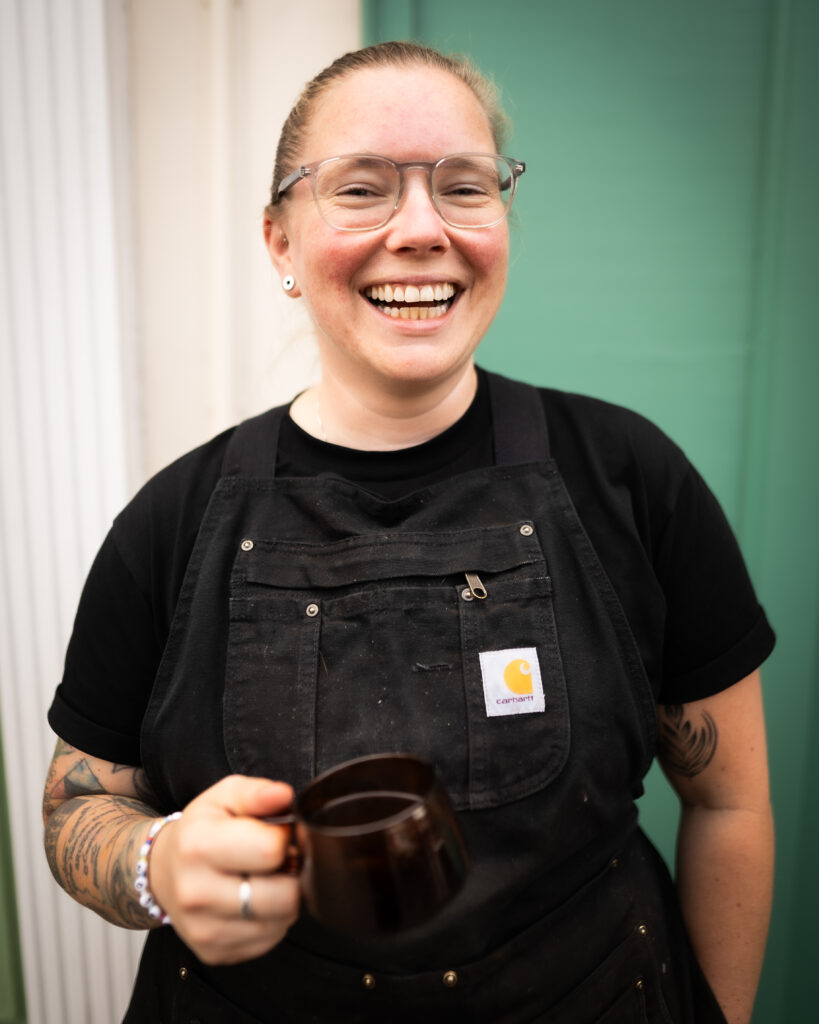
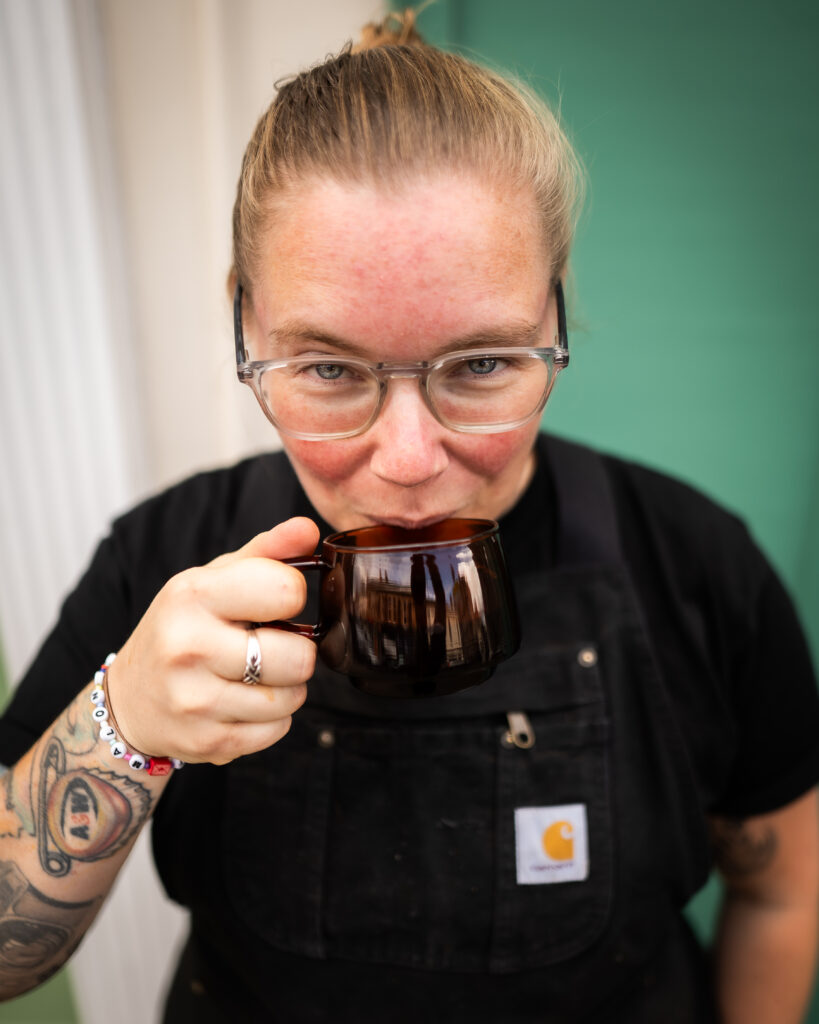
If there were one piece of knowledge about coffee you’d like everyone to know, what would that be?
Where the coffee comes from and how hard the farmers work to bring that beautiful drink to life. It all starts there, and yet the farmers are the ones receiving the least. Specialty coffee is nothing without those farmers and the extra efforts that go into all that they do. And they don’t do it for the money. They do it for their family and friends to live a happy and healthy life.
What are your passions and hobbies apart from coffee?
I am obsessed with my dog. His name is Toast, and he’s the most beautiful pup. I also have a very handsome ginger cat named Gilbert, and those boys are the best.
My wife and I like to go bouldering as well as go for walks and do anything outside, really. But if I’m being really honest, when I’m not at work making coffee, I’m at home…making coffee. My Instagram is full of brewing videos or me being silly with something coffee-related.
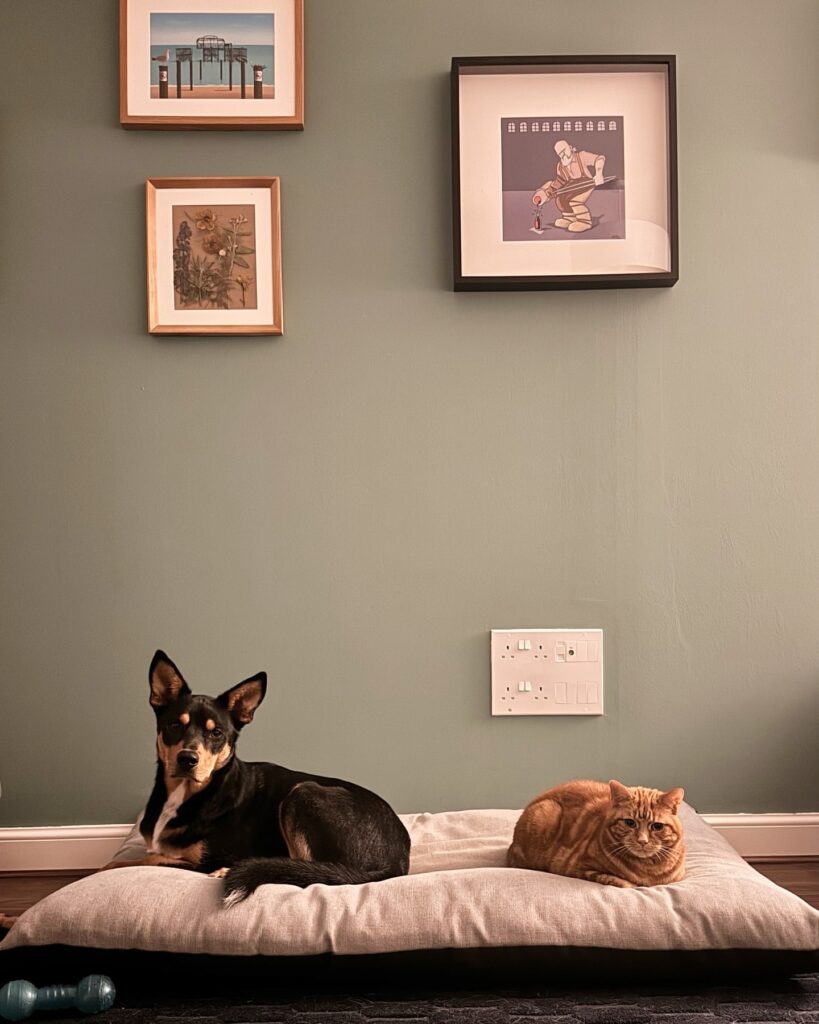
What coffee challenges are you looking forward to? Any new projects or collaborations?
I’m looking forward to that next opportunity to get back into roasting. That alone feels like a project in itself for me, but when the opportunity to get into a roastery again happens, I will be there 100%. I would be really keen to hear from anyone who likes my personality and would like to do something a little different. I’m not really a clean cut ASMR type of person. I really like making things silly and fun.

Quick Fire Questions for Amie Rene Wischmeier:
Filter coffee or espresso-based?
Filter coffee.
Milk coffee or black coffee?
I guess milky!
The most underrated coffee drink?
Cortado.
Which method to make coffee you use at home?
The Origami dripper.
The number one place in Europe that every coffee geek should visit?
La Cabra, Copenhagen.
Favourite city outside your own for a coffee tour?
Copenhagen and Barcelona!

